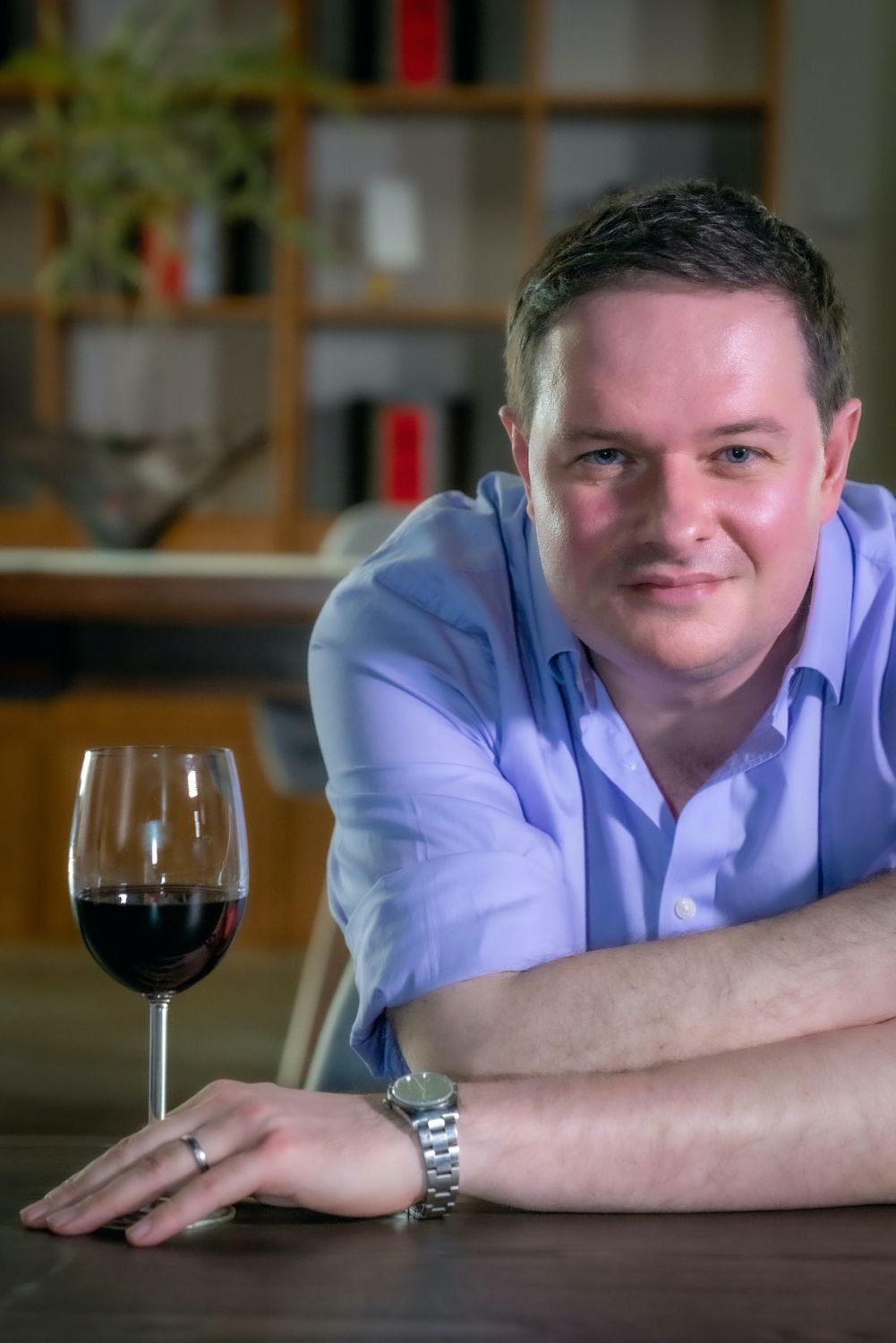The co-founder of Dragon Phoenix Wine Consulting on the changing status of wine in China, the regions and grapes he believes are overlooked and his favourite food and wine pairing
Less than 500 people have passed the Master of Wine exams since 1953, and there are currently just 420 Masters of Wine in the world. That’s fewer people with MW after their name than have been to space. This is partly because the exams to achieve the coveted qualification from the UK-based Institute of Masters of Wine—comprised of extensive theory learning, blind tastings and a 10,000-word research paper—are notoriously rigorous, taking a minimum of three years to complete with pass rates of around just 10%. In our series, Meet The Master, we talk to MWs about their journey to mastery, those formidable exams and what in the wine world is wowing them right now, from fun pairings to under-rated regions to the rapid developments taking place within wine in Asia.
Wine was always around when Edward Ragg was growing up, but he never envisioned a career that revolved around it. Even his captaincy and coaching of the University of Cambridge’s Blind Wine Tasting Society’s team was just a fun way to learn more about wine while he was pursuing his studies in English—he has an MPhil and a PhD. But meeting his now-wife Fongyee Walker, who also trained the Cambridge squad, and moving with her to Beijing in 2007, the couple went on to establish Dragon Phoenix Wine Consulting, which today is one of the leading wine education companies in China. He also regularly writes about and judges wine.
In 2015 Ragg decided to undertake his Master of Wine, just as his wife was completing hers. Upon achieving the qualification in 2019, he was also honoured with the Robert Mondavi Award for the best performance across the MW theory papers and the Quinta do Noval Award for the best MW research paper in the 2019 exams. Here he shares his thoughts on the famously difficult MW programme and delves deeper into some of the wines and regions that he’s keen to highlight.
Related: Meet The Master: China’s Leading Wine Educator Fongyee Walker MW
Do you have any early wine memories that were significant or that impacted your decision to pursue a career in wine?
There was no ’61 claret or gateway wine that hooked me, but wine was ever-present. My older brother worked in the British wine trade and would bring back unsold bottles, and I have cousins in Switzerland who made wine—chasselas and pinot noir—and I remember going there when I was young and tasting it mixed with water in that European way. Later, I would spend summers with a friend in Sauternes, and then, when I was 18, I went to Australia for a few months and a friend’s uncle who was a wine nut took us round the Hunter Valley for a few days. We went to a number of wineries and I remember experiencing palate fatigue for the first time—I could see the difference between red and white, but I could no longer taste it. I remember he treated us to an aged Australian red, too, which I’m pretty sure in hindsight was a Penfolds Bin 707, and that got me quite excited about wine. But it was really when I went to university that I started to engage with wine a bit more seriously. I was a member of the University of Cambridge Blind Wine Tasting Society, which was something fun and a great way to learn about wine. But it still wasn’t something I thought of doing as a career. I never set out to enter the wine industry. But when Fongyee and I moved to China in 2007, we decided to do something related to wine education.
Why did you decide to attain your Master of Wine?
You can be in the wine trade or industry in a lot of ways without ever considering doing the Master of Wine. For me, when I saw Fongyee go through it—she finished it in 2016—I saw how much she gained and how it improved her as a taster and as a communicator of wine. I also saw the development of wine education in China. By this stage I was teaching the WSET diploma and wanted to improve my own level in wine.
Do you have any advice for others who might be looking to achieve the MW?
When considering the MW, think about whether you are ready in terms of your overall life situation to embark on this kind of study programme, because it’s self-study based and a lot of work that you don’t really get a sense of until you are immersed in it. Do you have enough time to devote to study? You can’t breeze your way through the MW.
For those already in it, knowing any weaknesses is important. People like to study and taste things they are familiar and comfortable with, but when you look at the breadth of the syllabus, it’s important to work on what you are less familiar with. I like to think of the MW as a place where you leave your pride outside the classroom. People who take themselves too seriously or who are very proud about their position in the wine world don’t tend to progress very well because knowing your blind spots and admitting what you are weak on is key.
